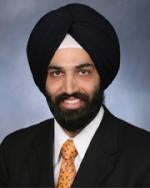In late March, three major health care trade associations filed amicus briefs in support of the defendant-appellees in U.S. ex rel. Michaels v. Agape Senior Community, et al., Record No. 15-2145 (4th Cir.). As we have previously reported, the relator in Agape is pursuing an interlocutory appeal to the U.S. Court of Appeals for the Fourth Circuit regarding the use of statistical sampling to prove False Claims Act (FCA) liability. In their respective briefs, the American Hospital Association (AHA), Catholic Health Association (CHA) and American Health Care Association (AHCA), did not mince words – a reversal of the District Court’s ruling that sampling cannot be used to prove FCA liability would have catastrophic consequences for the thousands of hospitals and health care providers throughout the United States.
In their joint brief, AHA and CHA noted that their member hospitals “submit thousands of claims to Medicare and Medicaid every day based on physicians’ medical judgments about patient conditions and courses of treatment.” On behalf of its members, AHA and CHA affirmed that “statistical analyses are no substitute for the on-the-ground medical context a treating physician knows, understands, and relies upon in making treatment decisions for a given patient.” The crux of the AHA/CHA argument is as follows: if the government and relators want to benefit from the treble damages and statutory penalty provisions of the FCA, then they must accept the “essential safeguard against its abuse: each claim must be separately proved.” The alternative, suggested AHA/CHA, is a “Trial by Formula” approach that has been rejected by the Supreme Court. With the majority of FCA qui tam cases being handled by relators directly—with limited oversight from a non-intervening United States—AHA/CHA argue that allowing statistical sampling to prove FCA liability would “shortcut” a physician’s clinical judgment. Moreover, they observe that “[p]erversely, the bigger the relator’s allegations, the lower his burden of proof would become; the result would be more health care providers forced into costly defense of meritless FCA suits and more in terrorem settlements,” diverting resources from patient care and increasing health care costs for everyone.
AHCA echoed many of the AHA/CHA arguments in its brief, but focused attention on the specific impact that the Fourth Circuit’s decision will have on its member skilled nursing and hospice service providers. Specifically focusing on the mechanics of how providers like Agape manage patient needs, AHCA explained that both the hospice and skilled nursing facility benefits under Medicare require “a highly individualized assessment of the individual patient’s diagnosis, conditions, ability to engage in activities of daily living, and care needs to determine benefit eligibility.” Pursuant to 42 C.F.R. 413.343, Medicare requires “licensed clinical professionals” to classify patient needs based on periodic assessments. AHCA noted that these periodic evaluations are reported to the government on a standardized form called the Minimum Data Set (MDS), which requires “complex evaluations of each patient’s nursing and therapy needs, ability to perform daily activities, cognitive status, behavioral problems, and medical diagnosis.” In light of the “significant variations” among patients and claims, AHCA argued, “no statistical methodology could substitute for the claim-by-claim and patient-by-patient evidence required to show that, in fact, a given patient was improperly deemed eligible for hospice care or a given claim was knowingly submitted.” Finally, AHCA pointed out that allowing the use of statistical sampling to establish liability would impermissibly shift the FCA’s burden of proof from the government (and relators pursuing the government’s claims) to defendants. AHCA noted that, if the Fourth Circuit were to reverse the trial court, providers like Agape would carry their own burden to “disprove the falsity” of “non-sample, unproved claims” – a result that would require “a rewriting of the FCA” by Congress to accomplish.
These amicus briefs highlight some of the potentially significant consequences that would result from a reversal of the favorable trial court ruling in Agape, at least for defendants litigating cases within the Fourth Circuit. They also hone in on some of the strongest arguments in favor of affirming the district court’s appropriate determination that statistical sampling cannot be used to establish FCA liability.




 />i
/>i
